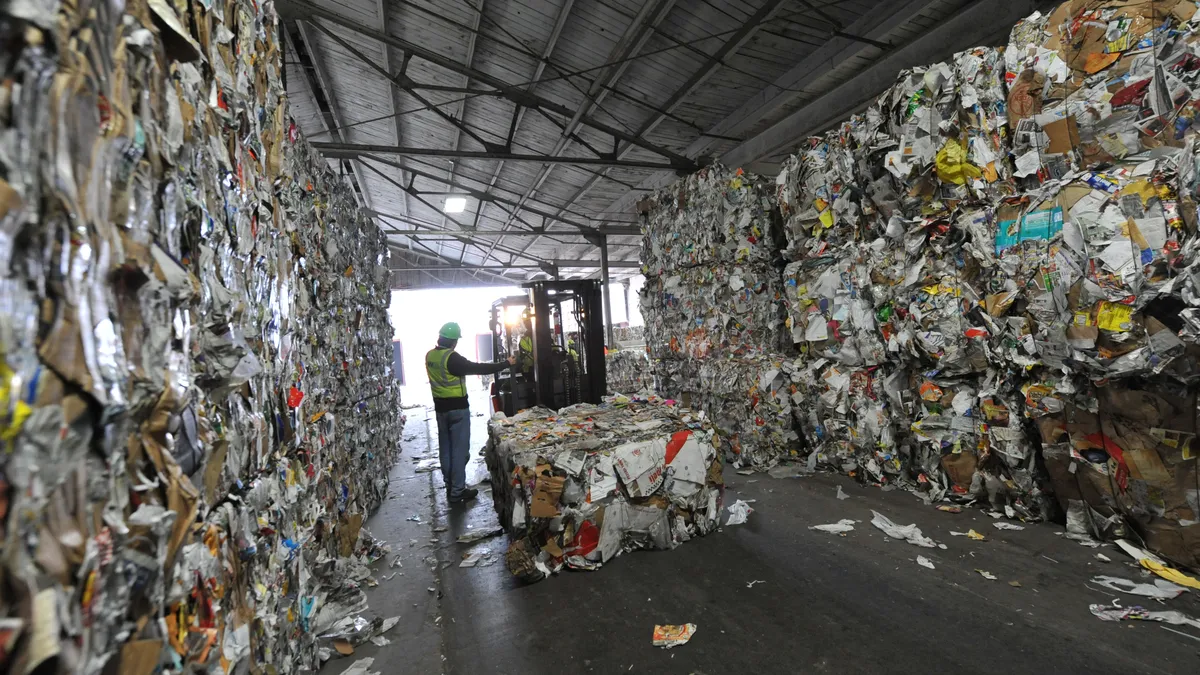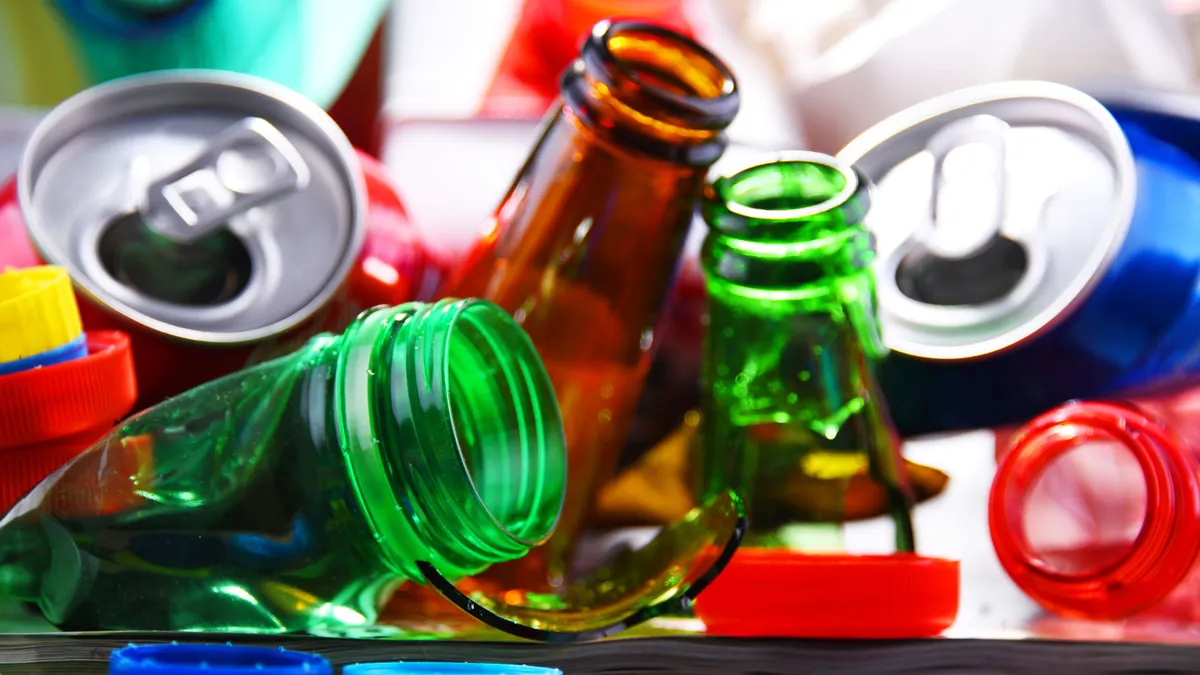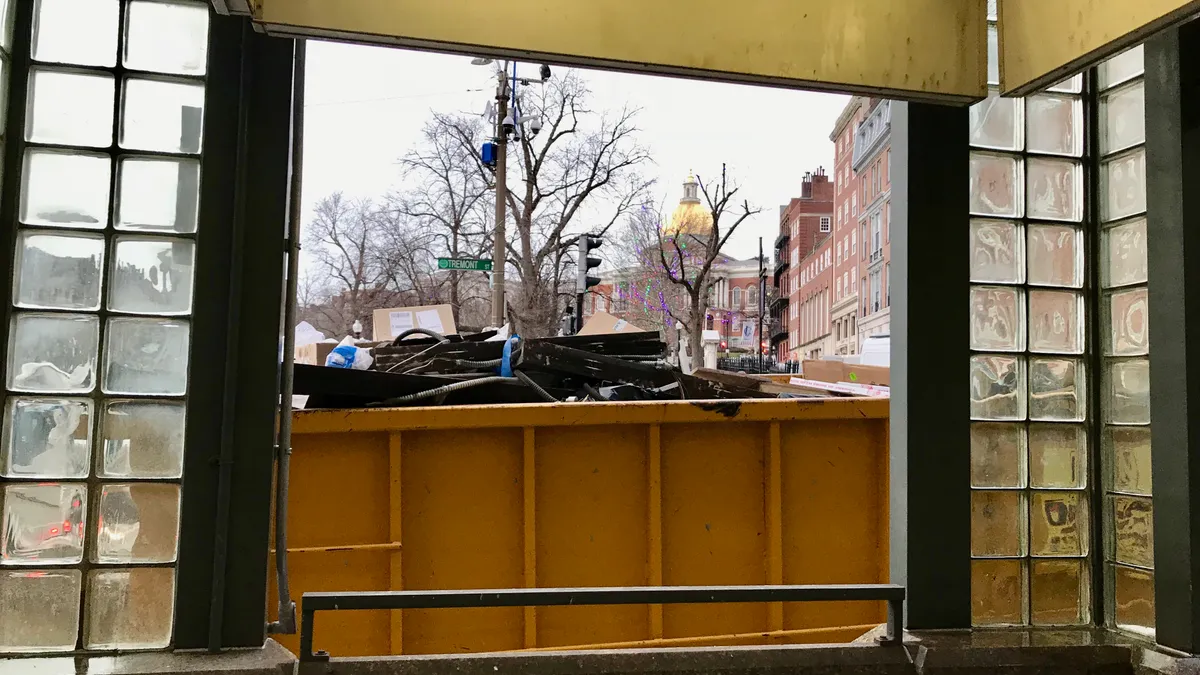With 2018 quickly approaching, we're looking back at some of the biggest stories that drove conversations and had the widest-ranging impact. The following 10 stories were the most visited on Waste Dive this year, covering topics from Inauguration Day to Hurricane Harvey to the latest China news.
Inauguration Day: Crews prepare to clean up after the masses in DC (No. 1 most-read story)
Back in January, the world was abuzz with presidential transition news. Waste Dive was more curious about what would happen with all the trash left behind, and this short piece ended up being the most-read in the site’s history. We checked in with the D.C. Department of Public Works to learn more about how it was preparing for an estimated 800,000 people.
While the actual attendance ended up being lower, the event still left plenty of waste and recycling to pick up from the National Mall. The story also touched on the role of sanitation vehicles as security barriers, an increasingly common precaution at public events.
News, insight and analysis about China's scrap import restrictions (Nos. 2, 3, 4 and 10 most-read stories)
What comes next after China's scrap ban surprise?, Surprise OCC price drop seen as latest sign China is serious about new trade policy, What Chinese import policies mean for all 50 states, ISRI: Proposed Chinese scrap import ban would be 'catastrophic' to recycling industry
China has for decades been the world's largest purchaser of scrap plastic, paper and other materials. It should come as no surprise that when the People's Republic announced it would be closing up shop, shockwaves went through the global waste and recycling industry.
In addition to causing unease in the industry, China's new import policies have already affected stock prices, temporarily crashed the price of some commodities, caused operators in states around the country to change their practices, and drawn rebukes and pleas for more time from industry groups. With China planning to ban certain materials as of January — and begin enforcing a 0.5% contamination standard in March — this story appears far from over.
Waste Management CEO Jim Fish on rethinking recycling and the 'next generation of landfills' (No. 5 most-read story)
Waste Dive sat down with Jim Fish at Waste Expo in May — one of multiple CEO interviews at the event — to talk about his initial months on the job and plans for the future. This wide-ranging discussion covered the company's plans to focus more on technology, expand its CNG fleet and reframe the recycling conversation to be more about emissions than tonnage. Like many of his fellow executives, Fish also expressed optimism for tax reform by the end of the year. Then, at WASTECON in September, we met with Fish again to talk hurricane response, China and the future of MRF labor.
Rubicon: Stoking competitive fires and stoking lawsuits (Nos. 6 and 8 most-read stories)
Waste Connections sues Rubicon, alleging misappropriation of trade secrets, For Rubicon Global, corporate chatter fuels a competitive fire
Rubicon Global raised its profile as one of the most high-profile and controversial companies in the industry during a busy year. In February, CEO Nate Morris spoke to Waste Dive about his plans to take on the industry and turned up the heat with a confrontational appearance at the WasteExpo Investor Summit in May that drew out other executives.
Soon after, a pattern of lawsuits over competitive practices bubbled to the surface when Waste Connections sued the company for alleged thefts of trade secrets in June. That continued throughout the year with legal wrangling in multiple states, which eventually included Republic Services too — and continues today.
Morris' public tone may have been more neutral at later events such as WASTECON, but the company continues to stake its claim as an industry newcomer. This year it also achieved "unicorn" status by raising over $1 billion, hired a new president, forged big partnerships and increased its emphasis on small business clients. Based on all this, Rubicon's continued presence should be expected to make 2018 another interesting year for the company.
Waste Management VP: We have 'just scratched the surface' of fleet data capture (No. 7 most-read story)
This narrative look into the daily schedule of a Waste Management driver in Massachusetts didn't stop at explaining itineraries and route planning. It also offered a close view at the proprietary technology that the company is integrating in its collections trucks to make drivers safer and more efficient.
Waste Management didn't stop there with technology in 2017. The company had successes with automated vehicle trials and plans to roll some out on closed sites. And Waste Management hired from within for its first chief digital officer, who will be responsible for all digital and technology functions, including e-commerce, online self-service, information technology, analytics and data management.
Waste Management donates $3M to Harvey relief funds (No. 9 most-read story)
Hurricane Harvey hit Houston hard in mid-August. Record flooding caused nearly $200 billion in damage. Everyone in the city was affected — including Waste Management, which is headquartered there. In addition to a $3 million cash donation to relief groups across the state, and later in Florida, Waste Management helped prioritize the sites that most needed to be cleared of debris.
Waste Management was just one part of the everyday heroes in the waste industry this year. Sanitation workers traveled to Puerto Rico to provide relief and aid, Republic Services matched some donations to relief groups and Waste Connections offered office space to displaced Waste Management employees. Nobody wishes for disaster, but if and when they strike in the year ahead, it is a near certainty that the men and women of the waste industry will be among the first to step up to help.
Staff Picks
Plenty of other big stories played out this year that either didn't quite make the top 10, or had more regional interest — but carried national implications.
One overarching theme, even before China's big news over the summer, was how recyclers and municipalities are dealing with a changing waste stream. In January, we looked at the challenges (and potential benefits) of flexible packaging. Then in February we profiled work happening around the country to engage with residents about recycling contamination. More recently, we continued that focus by looking at how five local governments expanded their recycling programs at a time when some others have begun cutting back.
The "zero waste" conversation continued in cities such as New York, Philadelphia, Boston, San Francisco, Austin, Phoenix and Washington, D.C. Other notable events included Republic's $165 million acquisition of ReCommunity, a contentious roll-out of the Los Angeles franchise program recycLA, a never-ending recycling contract debate in Houston, a slight improvement in industry safety numbers for 2016, debate in D.C. over the Renewable Fuel Standard, and growing interest in food waste collection.

















